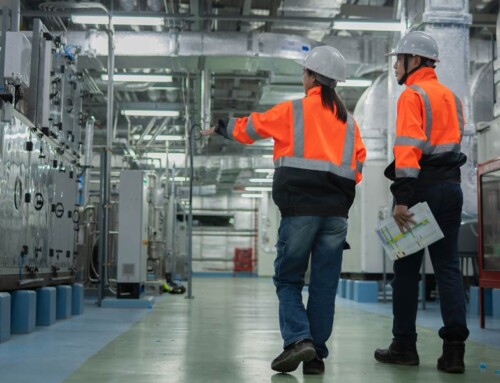EPA Issues RFI for Indoor Air Quality Management
ISSA urges members to respond to the Request for Information (RFI) from the U.S. Environmental Protection Agency (EPA), through which the Agency seeks to promote and advance the widespread adoption of actions that will lead to improvements in indoor air quality (IAQ) in commercial and institutional buildings to help prevent the transmission of infectious diseases such as COVID-19.
Background: To promote the Administration’s Clean Air in Buildings Challenge, EPA issued the RFI in part to identify: i) best practices in promoting awareness of and participation in the Clean Air in Buildings Challenge; ii) ways to recognize leaders that take steps to improve their building’s ventilation, filtration, and IAQ; and iii) defining quantifiable metrics or targets that could be helpful in evaluating or assessing the IAQ of a building.
Action Needed: ISSA members are encouraged to submit their comments on the EPA RFI directly to:
- ISSA General Counsel Bill Balek no later than November 30, 2022, for possible inclusion in ISSA’s comments to EPA; and
- EPA via email to: [email protected]. Include Docket ID No. EPA–HQ–OAR– 2022–0794 in the subject line of the message.
Comments Requested by EPA: In preparing your comments, ISSA members are directed to the RFI as published in the Federal Register on October 5, 2022, at Section 3.0 in which EPA poses specific key questions to which it seeks answers. Reprinted below are some of the questions posed by EPA. For a full list of such questions, we refer you to the RFI at Section 3.0.
- What approach(es) could the Federal government consider deploying to move decision makers/owners/managers toward making and sustaining improved ventilation, filtration, and air cleaning practices to reduce the risk of disease transmission?
What could these efforts look like (e.g., awareness campaigns, job training programs, voluntary labeling or other recognition programs, financial incentives, rebate programs)?
How might these efforts function (e.g., public-private partnership, expansion of existing public and/or private programs)? - In your opinion, what are the near-term indoor air quality related actions that could help schools respond to a COVID–19 disease surge?
- Over the long term, how can ventilation, filtration, and air cleaning improvements be prioritized and made standard practices in building design, construction, commissioning, renovation, and operations and maintenance efforts (e.g., building code adoption, training or other efforts to sustain proper practices such as operation and maintenance of HVAC systems as designed, weatherization, and other retrofit programs)?
- What is an effective approach for a building recognition program (e.g., pledge campaign, performance tiers, certification program)?
- What are the key characteristics of a building recognition program that would be needed to document credible efforts toward improved ventilation, filtration, and air cleaning in buildings?
What would be the principal IAQ parameters, measures, or other characteristics that could be included?
How could these parameters, measures, or other characteristics be assured or verified? - What quantifiable metrics or targets could be helpful in evaluating or assessing ventilation, filtration, and air cleaning parameters in a building?
What types of tools or technologies could support real-time assessment of ventilation, filtration, and/or air cleaning parameters in a building?
What qualitative or quantitative features could be helpful in assessing or describing ventilation, filtration, and air cleaning parameters in a building? - How might lessons from the COVID-19 pandemic be useful for long-term efforts to improve ventilation, filtration, air cleaning, and other indoor air quality parameters in the nation’s building stock?
Additional Information: Please contact Bill Balek with any questions or comments related to this message.
















